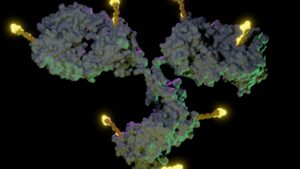The Future of Cancer Treatment: Antibody-Drug Conjugates (ADCs) Revolutionizing Oncology
At Extreme Investor Network, we’re dedicated to bringing you the latest insights on groundbreaking advancements in healthcare investments. One of the most exciting developments on the horizon is the rise of Antibody-Drug Conjugates (ADCs). As traditional chemotherapy remains a cornerstone of cancer treatment, the pharmaceutical industry is turning its sights toward these targeted therapies that promise to revolutionize the oncology landscape.
What Are Antibody-Drug Conjugates?
ADCs are sophisticated drug formulations that combine antibodies with potent chemotherapy agents. This innovative design enables the delivery of chemotherapy directly to cancer cells, sparing surrounding healthy tissue—a significant leap forward compared to traditional chemotherapy methods.
Since the introduction of the first ADC in 2000, substantial progress has been made. Over a dozen ADCs have been approved in the U.S. and are now preferred treatment options for specific tumors, with hundreds more in development.
The Promise of Targeted Therapy
Pharmaceutical giants such as AstraZeneca, Daiichi Sankyo, Pfizer, and Merck are heavily investing in ADC development. The global ADC market is projected to generate $31 billion by 2028—underscoring the vast potential for financial growth and patient impact.
David Fredrickson, executive vice president for AstraZeneca’s oncology division, stated, “We are leading the way toward establishing ADCs as a precision-based approach to replace classic chemotherapy.” This sentiment echoes throughout the industry as companies race to innovate and refine their ADC offerings.
Breakthroughs and Challenges Ahead
While ADCs show great promise, experts caution that we are still in the early stages of their adoption. Dr. John Heymach from MD Anderson Cancer Center reflects this cautious optimism: “While we have had successes in the space, the early hopes that ADCs would completely eliminate the need for chemotherapy have mostly been unfulfilled.”
Recent data from the 2025 American Society of Clinical Oncology (ASCO) meeting highlighted that ADCs are making strides in replacing traditional chemotherapy, particularly in the treatment of aggressive cancers like HER-2-positive breast cancer. AstraZeneca’s Enhertu, for instance, has yielded promising results that could shift treatment paradigms after a decade of stagnation.
Notable ADC Advancements
-
Enhertu: Approved for use against specific breast, lung, and gastric cancers, this ADC exemplifies innovation with its ability to deliver higher chemotherapy doses efficiently. It’s anticipated that upcoming data may expand its application, potentially allowing it to replace traditional chemotherapy in initial treatment settings.
-
Adcetris: This ADC has become a cornerstone treatment option for certain lymphomas, generating nearly $1.1 billion in sales last year, proving that ADCs can achieve commercial success while enhancing patient care.
- Trodelvy: Another notable entry, Gilead’s Trodelvy, demonstrates that ADCs could enhance safety profiles while improving outcomes for patients with aggressive breast cancer.
Addressing Challenges and Innovating for the Future
The journey toward optimizing ADCs is fraught with challenges. Issues such as the premature release of chemotherapy payloads and the need for precise targeting continue to pose hurdles. However, industries are actively researching next-generation ADCs and innovative linker technology to mitigate these challenges.
AbbVie, for instance, has obtained FDA approval for an ADC targeting the c-Met protein, among others. This focal shift could signify a move toward more effective treatments that stray from conventional chemotherapy.
Collaboration and Combination Therapies: A Holistic Approach to Treatment
As the ADC landscape continues to evolve, combination therapies are emerging as a crucial part of treatment strategies. The synergy between ADCs and immune checkpoint inhibitors, such as Keytruda, showcases the potential for creating more effective treatment regimens. Pfizer suggests that this combination could yield enhanced response rates and extended survival rates in various cancer types.
Conclusion: The Horizon of Oncology
The advancements in ADC technology symbolize a promising future for cancer treatment. As companies pursue innovative strategies and explore combination therapies, we remain hopeful that ADCs could not only replace traditional chemotherapy but also transform the lived experiences of millions fighting cancer.
At Extreme Investor Network, we are committed to keeping our readers informed and engaged with these pivotal changes in the healthcare space. Stay tuned as we delve deeper into the world of innovative therapies and their implications for investors and healthcare stakeholders alike.

